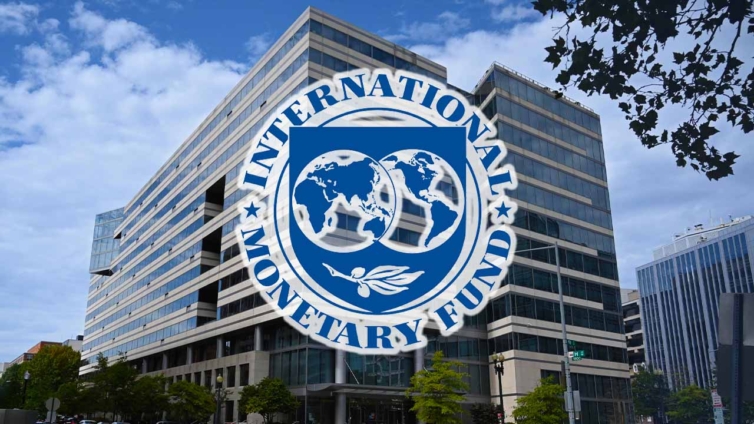Nigerian Government Defends $21.5 Billion Borrowing Plan, States It Won't Increase Debt Burden

President Bola Tinubu has approached the National Assembly with a significant financial request, seeking approval for a new external borrowing plan amounting to over $21.5 billion. This request, formally submitted on May 27, also includes a plea for authorization to issue federal government bonds valued at N757.9 billion. These bonds are intended to address outstanding pension liabilities under the Contributory Pension Scheme (CPS). The proposal has sparked discussions regarding Nigeria's public debt levels.
In response to the borrowing request, the Ministry of Finance, through its Director of Information and Public Relations, Mohammed Manga, issued a statement to provide clarity. The ministry emphasized that President Tinubu’s proposal is part of a broader, structured approach to debt management and should not be interpreted as an automatic escalation of the nation's debt burden. The plan, referred to as the Debt Rolling Plan or the 2024–2026 External Borrowing Rolling Plan, outlines the financing needs for both federal and sub-national governments over a two-year period.
The Ministry further elaborated that the Debt Rolling Plan is a strategic framework designed to guide "sustainable and purposeful borrowing," moving away from previous "inefficiencies of reactive borrowing." According to Manga, "This strategic method enhances Nigeria’s ability to implement effective fiscal policies and mobilize development resources. Importantly, it should be noted that the debt rolling plan does not equate to an automatic increase in the nation’s debt burden." This forward-looking tool is also designed to ensure alignment with Nigeria’s Medium-Term Expenditure Framework (MTEF), in accordance with the Fiscal Responsibility Act, 2007, and the Debt Management Office (DMO) Act, 2003.
Regarding the origin of the funds, the Ministry of Finance disclosed that the majority of the proposed loans are expected to be sourced from concessional lenders and prominent development partners. These institutions include the World Bank, African Development Bank (AfDB), China EximBank, Japan International Cooperation Agency (JICA), the French Development Agency (AFD), European Investment Bank (EIB), and the Islamic Development Bank (IsDB). The statement highlighted that "These institutions provide concessional financing with favorable terms and long repayment periods, which aligns with the country’s development needs."
The funds acquired through this borrowing plan are earmarked for critical investments in key sectors vital for Nigeria's economic progress. These include infrastructure development, transportation enhancements, energy projects, and agricultural initiatives. The ministry stated that these sectors are "central to achieving rapid, inclusive, and sustained economic growth." The borrowing strategy, it was stressed, is "guided not by the volume of loans but by their utility, sustainability, and the economic value they generate. Each facility will be strictly tied to growth-enhancing projects."
The Ministry of Finance also reiterated the government's unwavering commitment to fiscal discipline, transparency, and accountability in its financial dealings. It underscored ongoing efforts to maintain borrowing within sustainable limits, supported by comprehensive tax reforms and initiatives aimed at boosting domestic revenue generation. "Legislative oversight and public engagement are key to building long-term economic stability and inclusive national prosperity," the ministry's statement added, emphasizing a holistic approach to financial management and debt sustainability.
The concerns about increased borrowing come at a time when Nigeria's public debt has been under scrutiny. According to data from the Debt Management Office (DMO), Nigeria’s debt stock to countries under bilateral agreements reached $6.09 billion at the end of December 2024. This figure represented a 2.23% increase, or $133.02 million, compared to the $5.96 billion recorded at the end of 2023. The DMO data identifies key creditor nations under these bilateral agreements as China, France, Japan, India, and Germany, providing a snapshot of the country's existing international financial obligations.
You may also like...
The Economic Cost of Loneliness

Loneliness is silently draining billions from the global economy. This essay uncovers the hidden financial toll of socia...
Lando Norris's Fiery F1 Love Life: Girlfriend Margarida Corceiro Steals Spotlight

Formula One star Lando Norris has rekindled his romance with Margarida Corceiro, publicly confirmed by a kiss after his ...
Fever's Dire Injury Report: Caitlin Clark's Slow Return Impacts WNBA Season

Indiana Fever guard Caitlin Clark has faced an injury-plagued second WNBA season, missing 19 games and the All-Star Game...
007 Race Intensifies: New Bond Picks Emerge, Writer Revealed for Next Blockbuster!

The search for the next James Bond intensifies with Callum Turner emerging as a frontrunner, while acclaimed writer Stev...
Horror Thriller 'Weapons' Unleashes Critical Hype & Jaw-Dropping Premiere Moments!

Zach Cregger's new horror film "Weapons" delivers a chilling mystery about vanishing children, earning critical acclaim ...
Ozzy Osbourne's Final Days: Tributes Pour In As Rock Legend Passes

Heavy metal legend Ozzy Osbourne, who passed away recently at 76, continued to make news posthumously with revelations o...
Taylor Swift's 'The Life of a Showgirl' Album Drops, Shaking Up Music World!

Taylor Swift has officially announced her 12th studio album, "The Life of a Showgirl," during her debut appearance on Tr...
Pete Davidson's Paternity Dream: Star Set to Welcome First Child

Comedian Pete Davidson and model Elsie Hewitt are expecting their first child, a joyful announcement made by Hewitt on I...




